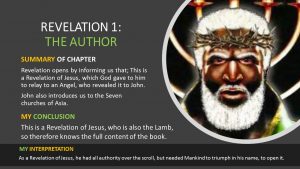
The Role & Purpose of Divine Law
Human Laws to Balance Natures Laws
The Temple of Yahshuah website subscribe to and advise that all people wishing to set up their own individual Temple within themselves, also subscribe to a series of Divine Laws. Although separated by time and culture, so therefore being totally independent, we believe that all these laws, ascribe to and equate to the exact same outcome, as well as come from the exact same source.
In addition to this belief we also believe that only one of these Law's are needed and that each of them is totally sufficient to fully align oneself with the Divine Creator. Nevertheless we present all these Laws here, for the purpose of demonstrating the actual heritage, the process and evolution of this Divine Law or Laws, as they have been revealed through the ages.
We subscribe to 3 defined Laws, two that can be found in the Holy Bible and the other pre-dating the Holy Bible by many thousands of years. The latter for the practical purposes and in-line with the passage of time, meaning what has been revealed since, namely the Holy Bible and the experience of African people in particular, has been adapted slightly to be more relevant to our current circumstance and in the context of our current objective. There is a proven record of African people following each of these Laws, over a period of 6000 years.
These 3 Laws include:
1. The Law of Ma'at, also known as the The Declaration of Innocence, dating from at least 4000 BC.
2. The Ten Commandments, also known as the Law of Moses, from around 1400 BC.
3. The Completed Law, not now known currently, but is called the Law of Yahshuah from 30 AD.
As mentioned all these three Laws are accepted and subscribe to within the Temple of Yahshuah, although we advise that the first two, ie. Ma'at and the 10 Commandments, be used only as references and for detail, to help people adhere to and follow strictly, the Law given by Yahshuah Himself, which represents the fullness and culmination of the two laws it proceeds.
These laws are featured newest to the oldest, historically;
The Law of Yahshuah (33 AD)
And Jesus answered him,
"The first of all the commandments is,
Hear, O Israel; The Lord our God is one Lord:
And thou shalt love the Lord thy God with all thy heart,
and with all thy soul, and with all thy mind,
and with all thy strength: this is the first commandment.
And the second is like, namely this,
Thou shalt love thy neighbour as thyself.
There is none other commandment greater than these."
Mar 12:29 -31
The Ten Commandments (1400 BC)
Exo 20:1 -17
And God spake all these words, saying,
I am the LORD thy God, which have brought thee out of the land of Egypt, out of the house of bondage.
(1)
Exo 20:3 Thou shalt have no other gods before me.
(2)
Exo 20:4 Thou shalt not make unto thee any graven image, or any likeness of any thing that is in heaven above, or that is in the earth beneath, or that is in the water under the earth:
Exo 20:5 Thou shalt not bow down thyself to them, nor serve them: for I the LORD thy God am a jealous God, visiting the iniquity of the fathers upon the children unto the third and fourth generation of them that hate me;
Exo 20:6 And shewing mercy unto thousands of them that love me, and keep my commandments.
(3)
Exo 20:7 Thou shalt not take the name of the LORD thy God in vain; for the LORD will not hold him guiltless that taketh his name in vain.
(4)
Exo 20:8 Remember the sabbath day, to keep it holy.
Exo 20:9 Six days shalt thou labour, and do all thy work:
Exo 20:10 But the seventh day is the sabbath of the LORD thy God: in it thou shalt not do any work, thou, nor thy son, nor thy daughter, thy manservant, nor thy maidservant, nor thy cattle, nor thy stranger that is within thy gates:
Exo 20:11 For in six days the LORD made heaven and earth, the sea, and all that in them is, and rested the seventh day: wherefore the LORD blessed the sabbath day, and hallowed it.
(5)
Exo 20:12 Honour thy father and thy mother: that thy days may be long upon the land which the LORD thy God giveth thee.
(6)
Exo 20:13 Thou shalt not kill.
(7)
Exo 20:14 Thou shalt not commit adultery.
(8)
Exo 20:15 Thou shalt not steal.
(9)
Exo 20:16 Thou shalt not bear false witness against thy neighbour.
(10)
Exo 20:17 Thou shalt not covet thy neighbour's house, thou shalt not covet thy neighbour's wife, nor his manservant, nor his maidservant, nor his ox, nor his ass, nor any thing that is thy neighbour's.
The Laws of Ma'at 4000 BC
The Declaration of Innocence, was normally declared after death in the presence of God. However as it must have been known in life and when living, to have been able to be declare in death, we have therefore adapted these Laws to coincide directly with how they would have been perceived, known and subscribed to by the living. In addition to this adaptation we have also removed any insinuation of acknowledgement to Any Other God than the One God of All Ages Yahovayah, which is inconsistent with not only the true faith, but also the religion and faith of the Egyptian themselves.
This has been achieved by adding the term "/will" present and future tense to "I have/", past tense.
(1) " I have/will not do iniquity."
(2) " I have/will not rob with violence."
(3) " I have/will not steal."
(4) " I have/will commit no murder; I have/will do no harm."
(5) " I have/will not defraud Temple offerings."
(6) " I have/will not diminish my oblations."
(7) " I have/will not plundered or defame God."
(8) " I have/will speak no lies."
(9) " I have/will not snatch away food."
(10) " I have/will not cause pain."
(11) " I have/will not commit fornication."
(12) " I have/will not cause the shedding of tears."
(13) " I have/will not deal deceitfully."
(14) " I have/will not transgress."
(15) " I have/will not act guilefully."
(16) " I have/will not lay waste the ploughed land."
(17) " I have/will not be an eavesdropper."
(18) " I have/will not set my lips in motion [against any one]."
(19) " I have/will not be angry/wrathful except for a just cause."
(20) " I have/will not defile the wife of any man." (repeated below)
(21) " I have/will not defile the husband of any women."
(22) " I have/will not polluted myself."
(23) " I have/will not cause terror."
(24) " I have/will not transgress."
(25) " I have/will not burn with rage."
(26) " I have/will not stop my ears against words of Right &Truth."
(27) " I have/will not work grief"
(28) " I have/will not act with insolence."
(29) " I have/will not stirred up strife."
(30) " I have/will not judge hastily."
(31) " I have/will not be an eavesdropper."
(32) " I have/will not multiply words exceedingly."
(33) " I have/will do neither harm nor ill."
(34) " I have/will never curse the king."
(35) " I have/will never foul (poison) the water."
(36) " I have/will not speak scornfully."
(37) " I have/will never curse God."
(38) " I have/will not steal."
(39) " I have/will not defraud the offerings of God."
(40) " I have/will not plunder the offerings of the blessed dead."
(41) " I have/will not filch the food of the infant, neither have/will I sin against the God of my native town (ancestors)."
(42) " I have/will not slaughter with evil intent the animals of God."
Summary of the above Laws
As can be seen here there are much similarities between each of these three laws, each providing us with a different strategy to develop and maintain a righteous life.
The Law of Ma'at in particular goes into great detail, as to what is expected and what type of behaviour equates to righteous conduct. Whilst The 10 Commandments tends to be instructive and advice, representing the minimum standard that is acceptable; And the Law of Yahshuah, focusses primarily upon focusing the brain, heart body and soul, to best achieve a life of righteousness, upon the LOVE of GOD and FELLOW HUMAN BEINGS.
From each of these Laws that span over a period of 6000 years, can be found much useful guidance to help the individual shape their own minds and their lives in-line and in-sync with The Father, The Holy Spirit and the Son, Yahshuah Immanuel Karast Mesu..




